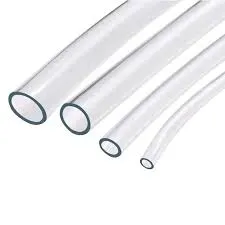Aug . 12, 2024 15:36 Back to list
Exploring the Versatility and Applications of Thin PVC Sheets in Various Industries
The Versatility of Thin PVC Sheets Applications and Advantages
Thin PVC sheets have gained popularity across various industries due to their versatility, durability, and cost-effectiveness. Polyvinyl chloride, commonly known as PVC, is a synthetic plastic polymer that is widely used in construction, packaging, and many other sectors. When manufactured in thin sheets, PVC emerges as a highly adaptable material that caters to a wide range of applications.
The Versatility of Thin PVC Sheets Applications and Advantages
In the realm of signage and display, thin PVC sheets have become a go-to material due to their ability to be printed on and formed into various shapes. Businesses frequently use these sheets for advertisements, point-of-purchase displays, and directional signage. The smooth surface of thin PVC sheets allows for high-quality printing, ensuring that graphics are sharp and vibrant. Moreover, they can withstand various weather conditions, which makes them suitable for both indoor and outdoor signage.
thin pvc sheets

Thin PVC sheets are also popular in the crafting and DIY community. Their ease of manipulation allows hobbyists and professionals alike to create a myriad of projects, from model making to elaborate art installations. They can be painted, glued, and even welded, providing a unique platform for creative expression. Whether used for educational purposes or artistic endeavors, thin PVC sheets yield impressive results while being affordable.
In the realm of packaging, thin PVC sheets play a crucial role. They are often used to create protective covers, blister packs, and containers, ensuring that products are safely stored and displayed. The clarity of thin PVC allows for excellent visibility of the contents, which is particularly important in retail settings. Additionally, their chemical resistance ensures the integrity of the products they protect, making them suitable for a variety of industries, including food and pharmaceuticals.
While the versatility of thin PVC sheets is undeniable, it is essential to consider their environmental impact. PVC is a synthetic material that has raised concerns regarding its production and disposal. However, advancements in recycling technologies have made it possible to reuse PVC sheets, thereby mitigating some of the environmental concerns. Many manufacturers now prioritize sustainability by producing recycled PVC and developing processes that reduce waste.
In conclusion, thin PVC sheets are a remarkable material that offers substantial advantages across different sectors. Their lightweight nature, adaptability, and impressive durability make them a staple in construction, signage, crafting, and packaging. While environmental considerations remain relevant, ongoing innovations in recycling and manufacturing are paving the way for a more sustainable future for PVC products. As industries continue to evolve, thin PVC sheets are likely to remain an integral component of diverse applications, providing both functionality and aesthetic appeal.
-
High-Quality PPR Pipes and Fittings Durable ERA PPR & PVC PPR Solutions
NewsJul.08,2025
-
Black HDPE Cutting Board - Durable, Non-Porous & Food Safe HDPE Plastic Cutting Board
NewsJul.08,2025
-
High-Quality CPVC Panel Durable HDPE & PVC Panels Supplier
NewsJul.08,2025
-
Double PE Welding Rod Supplier - High Strength, Durable & Versatile Welding Solutions
NewsJul.07,2025
-
High-Quality PVC-O Pipe Supplier Durable 75mm PVC Pipe & Connections Leading PVC Pipe Company
NewsJul.07,2025
-
HDPE Drainage Pipe Supplier – Durable & Corrosion-Resistant Solutions
NewsJul.06,2025

